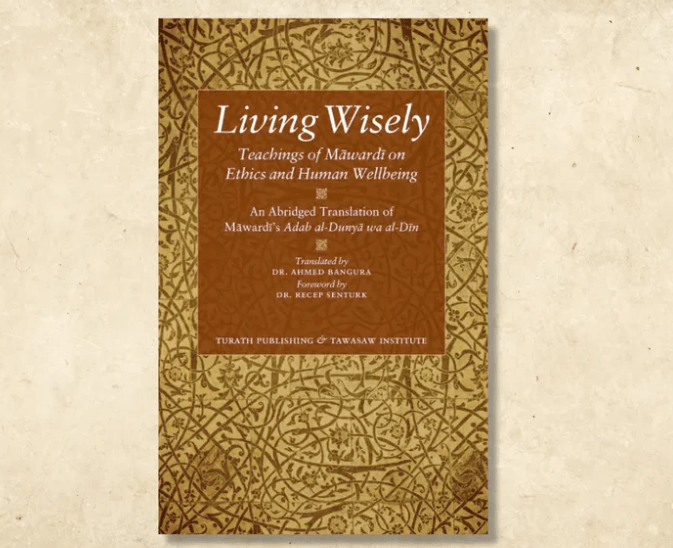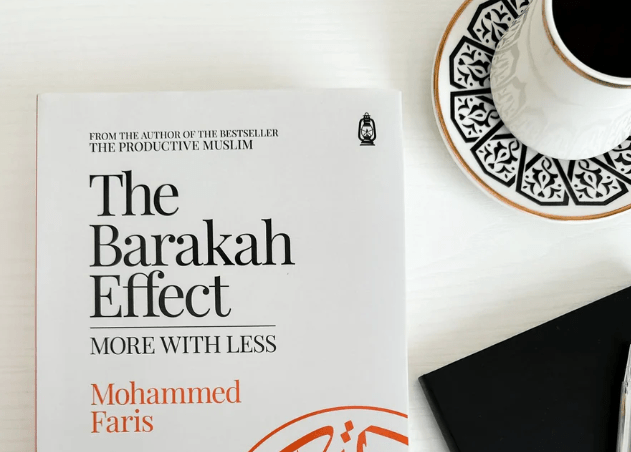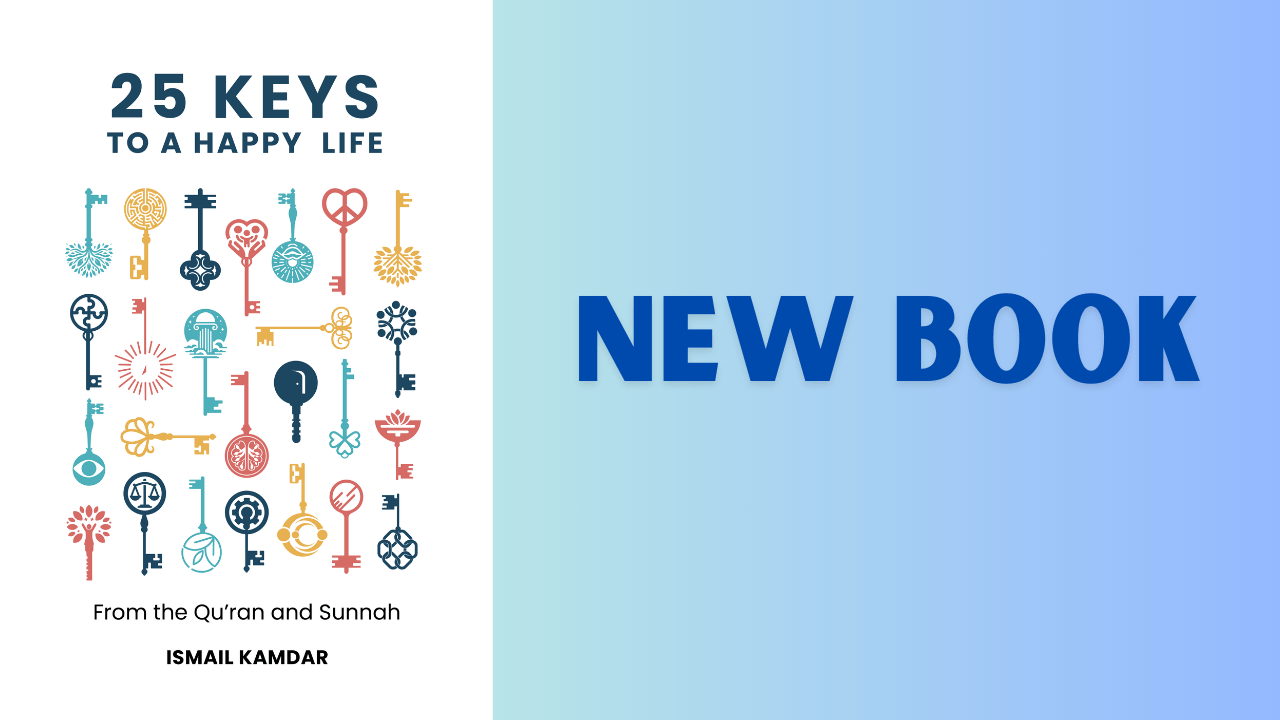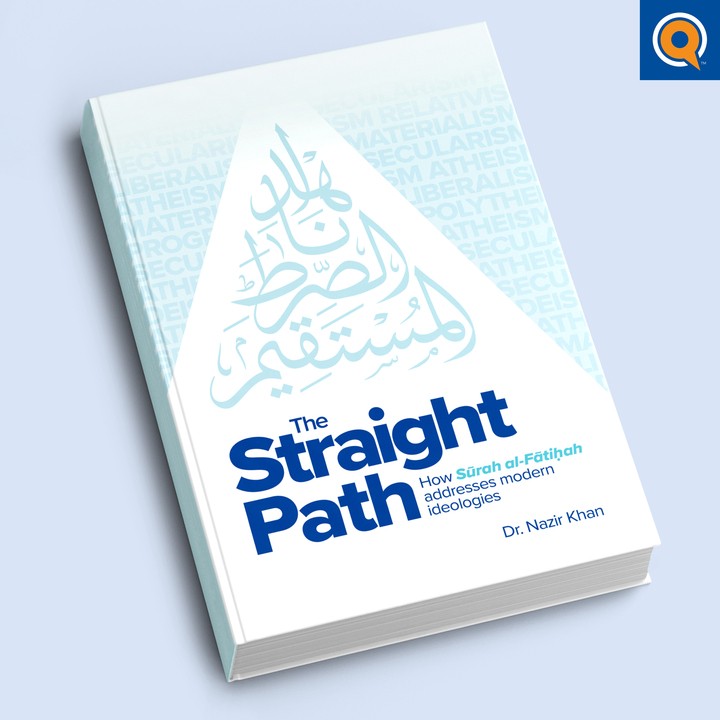Very rarely do I come across books that immediately become beloved to me, books that have the ability to transform the soul and shape one’s life. Adab al-Dunya wa al-Din is one such book. This new translation by Dr. Ahmed Bangura is a brilliant work that brings this masterpiece to a new audience. Living Wisely is my favourite book that I read in 2024. In fact, I enjoyed this book so much that I am currently teaching an in-depth online course based on this book. Learn more about our latest online course here.
A textbook on happiness and success
Adab al-Dunya wa al-Din (Ethics of Worldly Life and Religion) is a brilliant classic masterpiece written over a thousand years ago. During the Golden Age of Abbasid Baghdad, the great Shafi’ee scholar Ali Al-Mawardi wrote this excellent manual on ethical and purposeful living. This book dives into core themes that help us to succeed at both worldly life and religious goals. The book highlights the importance of nurturing the intellect, controlling one’s desires, seeking beneficial knowledge, prioritizing obedience to Allah, developing healthy relationships, earning one’s sustenance, being content with one’s destiny and refining one’s character among other themes.
A key focus on the book is balance. For example, a lot of the book focuses on the importance of Zuhd (ascetism) and the dangers of greed. At the same time, the author encourages financial freedom and working hard. Likewise, the book focuses on the importance of being content with one’s destiny while encouraging the reader to have high goals and aspire to greater ideals. In this way, the book serves a guidebook on balancing worldly and religious success.
A brilliant translation
The translation by Dr. Ahmed Bangura flows very well in English. He has done an excellent job of trimming out sections that are repetitive or irrelevant to modern readers, while maintaining the flow and core themes of the book. The foreword by Dr. Recep Senturk is excellent and dives into some key themes related to the book like the multiplex human being, the levels of the soul and the types of ethics that exist within Islam. Overall, the author and his team have done and excellent job of bringing this classic work to the English language, making it accessible to an entirely new generation.
Some key lessons
I learned a lot from this book. A key lesson I learned from this book is the importance of preserving and nurturing the intellect in Islam. Our minds are gift from Allah, and we must take care of it and utilize it in a way that is pleasing to Allah. We must avoid anything that corrupts the mind, dumbs it down, or wastes its potential. Success in worldly fields and in religious pursuits depends on sharpening the mind and utilizing its it properly.
Another beautiful lesson from this book is the importance of aspiring to higher goals. In this book, high aspirations are linked to manliness and showcased as a key difference between a real man and boy. Real men aim high, work hard, and make a difference in the world. This book encourages the reader to seek out noble goals that benefit the ummah and to dedicate their lives to work that matters.
I also learned from this book that humans are social creatures and need each other. A large portion of this book focuses on social relations. There are lengthy discussions of the qualities of a thriving civilization in which people are can live in peace and attain their full potential. There is also a lot of discussion on the importance of various relationships (marriage, family, in-laws, friendships) and how to thrive in these relationships. This book encourages the reader to have quality relationships that benefit all involved in both worlds, and to avoid relationships that can destroy one’s worldly and religious pursuits.
Final Review – 10 out of 10 A Masterpiece
This was easily my favourite book of 2025. I enjoyed every page and did not want the book to end. It was deep, spiritually nourishing, practical, and transformative. The translation is well-written, and you can feel the translator’s love for the original in his work. Overall, I recommend this book for anyone looking for a truly classical guide to personal development.
This book is so deep that I want to read it a few more times. This is why I chose it as the textbook for my next online course. The best way to understand a book deeper is to study it and then teach it to others. This helps us to unlock a deeper understanding of the book and commit it to our long-term memory. You can sign up for our online course here.






